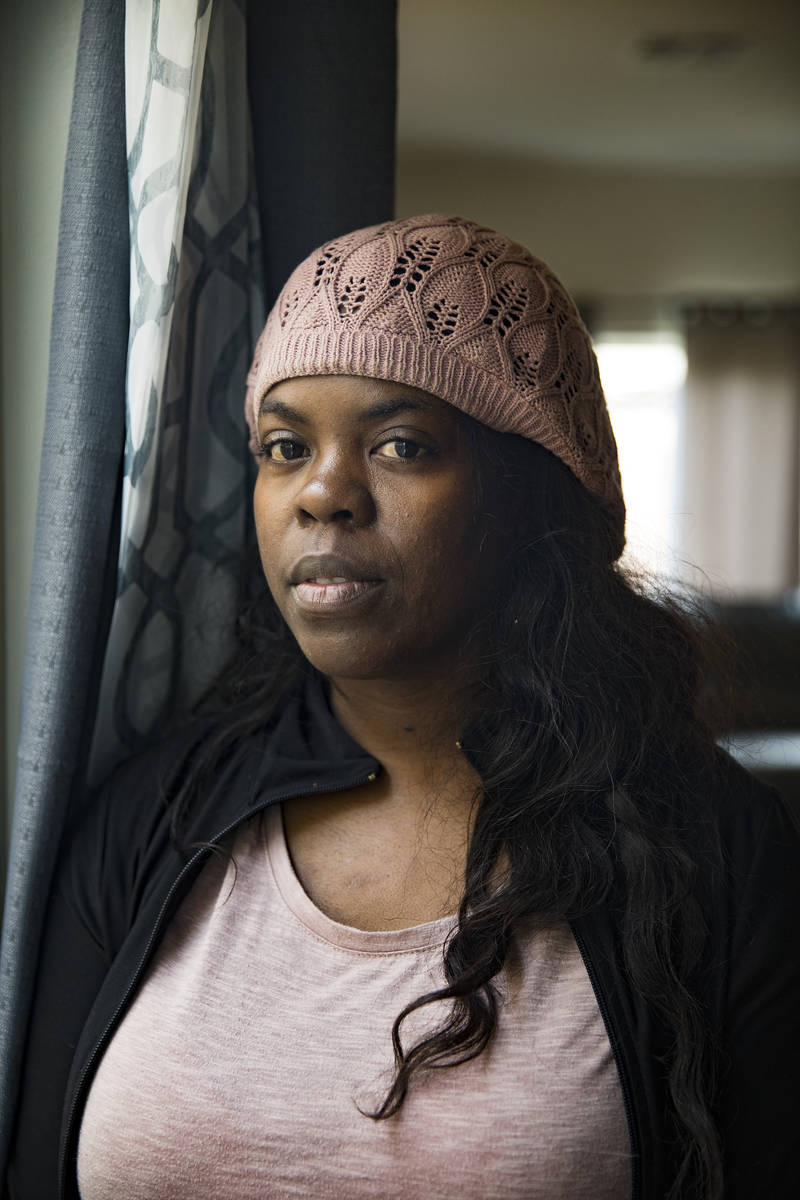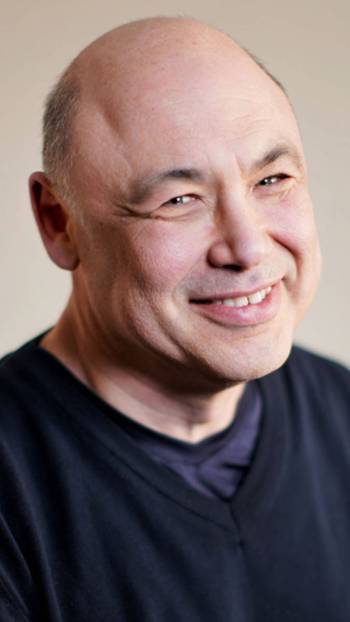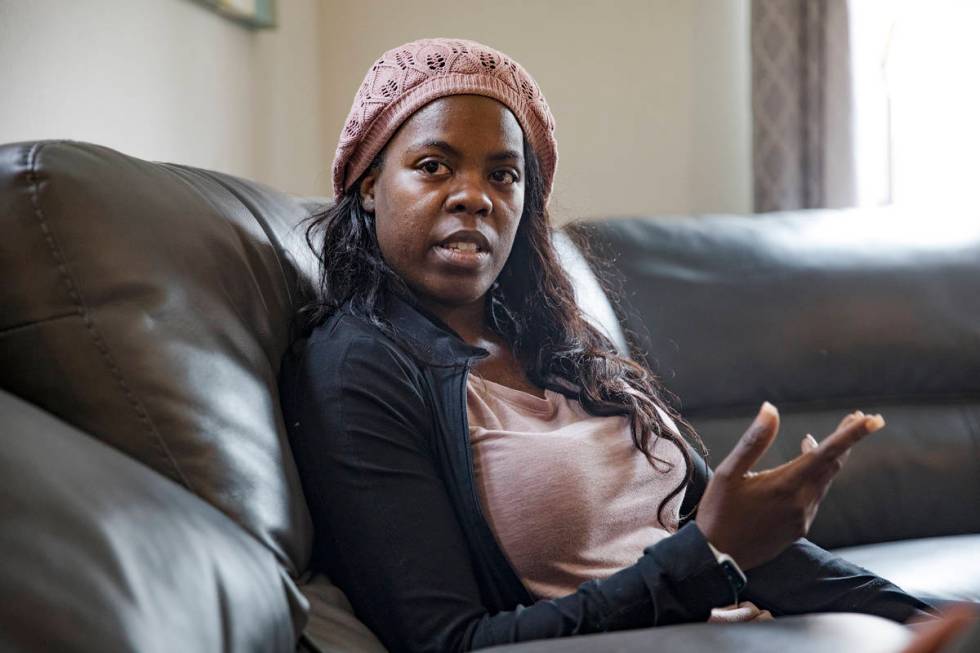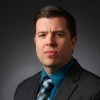Las Vegas Army vet overcomes PTSD with novel treatment
When the quiet came, so did the memories.
Silence — Debra McCall grew to hate it.
“I would think about it,” the North Las Vegas mother of two recalls, explaining how flashbacks once gripped her during moments of calm that were anything but. “It’d bring everything back.”

When McCall was a 19-year-old Army recruit, she was sexually assaulted by a higher-ranking officer during her first year of enlistment.
It’s a far too common occurrence: One in 5 women in the military are victims of sexual assault, making them nine times more likely to experience post-traumatic stress disorder.
“If you are a female in the military who has (experienced) sexual abuse, the chances of (having) PTSD is like 80 percent, which is horrible,” says Dr. Eugene Lipov, a Chicago-based pain management specialist who treats PTSD.
McCall’s PTSD cast a pall over her life, making her feel like an exposed nerve or someone whose toes were constantly dangling over some dark precipice.
She sought help from therapists and counselors, with little relief.
I said, ‘I don’t want medication. I want to be treated. I want to be cured. I want to be myself.'
Debra McCall, veteran and survivor of sexual assault
“It’s very hard to talk about something you don’t want to talk about,” McCall explains.
She hardly slept, getting maybe four hours of rest a night — if she was lucky.
Doctors offered her sleep aids.
“I said, ‘I don’t want medication. I want to be treated. I want to be cured,” recalls the 40-year-old. “I want to be myself.”
Enter Lipov, who had pioneered a new approach to treating PTSD.
For McCall, it was a last-ditch attempt at prying herself from the maw of an affliction that threatened to swallow her whole.
“It literally shut down every aspect of my life, from my career to my family to who I am. It just shut me down,” McCall says from the living room of her home.
“I’ve kept journals, and I wrote down, ‘I’m not living,’ ” she continues, “ ‘Every day is a survival.’ ”
Battling PTSD from the front lines
Lipov also had a personal connection to PTSD, through the suffering of his father, a World War II veteran whose squadron lost 90 percent of its men.
“Their job was to attack heavily fortified German ships,” Lipov says. “So he had quite the PTSD from that. Growing up with him was challenging, to put it mildly.”
Adding to the trauma, Lipov’s mother committed suicide when he was a surgical resident.
“PTSD is very personal for me,” says Lipov.
In 2003, he treated a patient who had hot flashes with the stellate ganglion block procedure, which dates back to 1925. The stellate ganglion is a nerve bundle located on each side of the neck. Pain can be alleviated by injecting an anesthetic mixture into those bundles.

After researching the impact the procedure could have on fight-or-flight responses, Lipov put a new spin on an old practice by applying the procedure to PTSD sufferers. In 2006, Lipov treated his first PTSD patient.
It worked.
The following year, he aided an Iraq War veteran battling PTSD so severe that he attempted to kill his wife on numerous occasions.
Again, the treatment was successful.
Lipov began getting media attention for his efforts, appearing on “The Doctors” talk show numerous times and was profiled in his hometown paper, the Chicago Tribune, which caught the attention of Sean Mulvaney, lieutenant colonel at Walter Reed National Military Medical Center, who would help introduce Lipov’s approach, now called the Lipov block procedure, to the armed forces.
In the years since, Lipov has treated 750 patients, and estimates that more than 4,000 enlisted men and women have benefited from his approach.
Perhaps, surprisingly, soldiers are not the largest group affected by PTSD.
“The biggest circulation of people with PTSD is not military, it’s women,” he says, “abused women.”
Women like Debra McCall.
I reported everything, and then they were like, ‘Well, we don’t find your story believable.' That’s when I got fingerprinted and arrested. He said it was consensual.
Debra McCall, veteran and survivor of sexual assault
A life upended
She was a basketball player at El Camino College, an athlete, a tomboy, the kind of high-motor personality whose engine is always revving.
Then, everything changed.
“My sister got pregnant and my mom lost her job,” McCall says. “I went to school with 55 cents in my pocket. I had a part-time job, but all my (earnings) went to the bills of the house. I got my first F ever, and I said, ‘I need to be successful by any means necessary.’ ”
So she joined the Army.
Months after enlisting, McCall was sexually assaulted. She reported the crime immediately, only to be accused of a crime herself: making false allegations.
“I reported everything, and then they were like, ‘Well, we don’t find your story believable,’ ” McCall says. “That’s when I got fingerprinted and arrested. He said it was consensual.”
Then came the harassment.
“I got notes slid under my door calling me all kinds of names,” she says. “I got crucified. I got disciplined for it.”
The Army eventually sided with McCall.
“Six months later, they apologized to me because he got some girls pregnant,” she says. Still, the damage was done. “It changed me from the inside. It just changed me.”
McCall returned home to Los Angeles, and worked in the ROTC department at the University of Southern California for the next decade.
But she wasn’t the same.
She outgrew her job, but stayed on anyway.
“I was overqualified, but it gave me my own office. I didn’t have to interact with people,” McCall says. “You got your MBA, you can do a lot more, but I didn’t want to be in management because I didn’t want to be around people.”
She was teeming with this nervous energy, counting the seats on airplanes when she flew, taking different routes home from work, worried that someone was following.
Once a social butterfly, McCall wrapped herself in a cocoon.
“Before this, I was very outgoing,” she says. “I was fearless, learned to build and ride motorcycles. I was very social. And then, when I got assaulted in the military, it stopped. I didn’t talk to people. I didn’t have a connection with my family. I wouldn’t even go to Thanksgiving dinner.”
Then in 2016, McCall lost her job. Before she knew it, she was living in a veterans homeless shelter with her two young kids from a previous relationship.
“Life happened,” she says. “Talk about the perfect storm.”

A life restored
Her life had the dramatic arc of a daytime TV show, so it was only fitting that McCall would appear on one. That year, McCall was invited to appear on “The Doctors” talk show for an episode on homeless veterans. A few months later, she was on the show again, and was introduced to Lipov, who offered to fly her to Chicago and treat her PTSD for free.
McCall was excited, but apprehensive.
“I had anxiety about it,” she acknowledges. “I’m in my safe bubble. I said, ‘My body has broken down on me. My mind is my last defense. If you put a shot in my neck and it messes with my mind, if this goes wrong, I’m screwed. There’s no backup plan to this.’ ”
Still, she took the plunge.
The show chronicled her procedure, including the moment she woke up and experienced its effects for the first time.
“I don’t feel that fear,” she says, while recovering from anesthesia, but the relief registered on her face despite her grogginess.
“It was instantaneous, it really was,” she explains later of the one-time procedure. “The best way that I can describe it is that there was a block there and no matter how hard you hit the wall, it couldn’t fall. And then, out of nowhere, after he did the procedure, it just went away. I felt like myself again. I’m not in this heightened state so much. That’s exhausting, when you’re afraid all the time.”
Moving forward
McCall is now finishing her Ph.D online at Webster University, with the aim of teaching business and marketing as a college professor.
Her PTSD road to recovery will culminate in marriage: She’s set to wed fiance Anthony Romero at Paiute Golf Resort later this year. The ceremony, originally scheduled for March, was delayed because of the coronavirus outbreak.
“With the wedding, I was able to move forward in life,” she explains, sharing pictures of her Cinderella-worthy wedding dress on her cellphone, smile as bright as the snow-white gown.
After 21 years, she’s eager to do something she hasn’t done in all that time: celebrate.
“I graduated with my associate’s, my bachelor’s, my MBA, I came home from the Army — I never celebrated. I didn’t have baby showers,” she says.
“This is the first time in my life that I am celebrating something.”
Contact Jason Bracelin at jbracelin@reviewjournal.com. Follow @JasonBracelin on Twitter.













